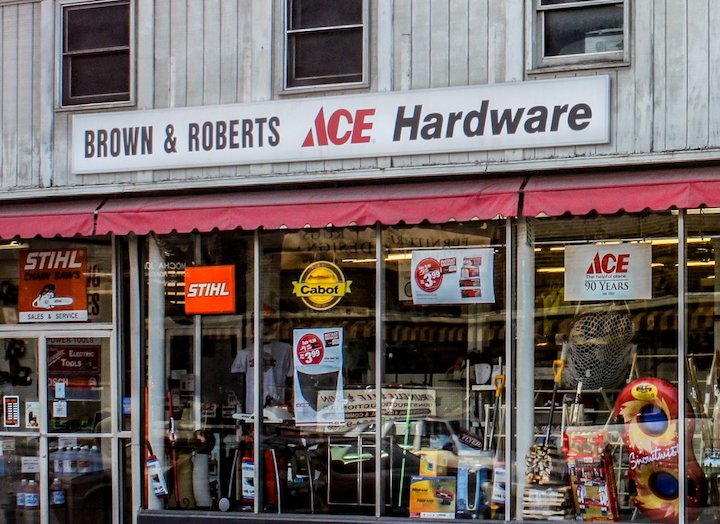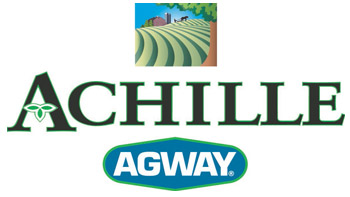Avoiding Amazon
As much as possible, I shop locally – while I still can. But when the machine on which we rely for our daily bread recently came to the end of its life, I shopped online for a replacement. None were available from the manufacturers, and every big box store that listed it on their website was out of stock. Without much choice, I bought it at Amazon, and while checking out I was tricked into a thirty-day free trial of Prime.
I don’t like shopping on-line; I especially don’t like buying from Amazon; I certainly don’t like being tricked into Prime, and I don’t patronize stores where I have to pay to get in. So I clicked and clicked and clicked some more until I could cancel my inadvertent Prime account.
Despite the so-called convenience, shopping on-line damages the local economy. Amazon doesn’t employ local workers and pays no local taxes. I’d rather shop downtown, where I’ve come to know the local merchants, where I can inspect the merchandise before I purchase it, and where I receive great service from people I’ve come to know. These things matter to me. So here’s my guide to the Brattleboro shops that provide me with almost everything I need.
Clothing

Sam’s Outdoor Outfitters, the source of most of my clothes, both for outdoor adventure and for sitting at my desk. This season, I bought a new pair of jeans. The sizing of women’s clothing is one of the great mysteries of the universe. With help from sales staff I’ve come to know over the years, I tried on seven different styles in three different sizes before I found a pair that fit. How do you do that on-line?
In the last few years, other items I’ve purchased at Sam’s with help from their knowledgeable staff include a backpack adjusted to my frame that I tried on (loaded with weights) before purchasing; lined leather gloves for handing firewood; a scope for my hunting rifle, yoga attire, a wool dress, and my first-ever hunting license.
Books

When I’m not outdoors, I’m reading. Ever since we ran out of shelf space, I’ve tried to limit how many new-to-us books come into the house. That doesn’t stop Tim from buying books at local, charitable sales. This year, he bought at least one of the books we donated. Oops.
But reading is central to life, and if I need a book I don’t already own or can’t find at a library, I can buy it at Everyone’s Books. If they don’t have it, they can get it for me in a matter of days. It’s also where I buy almost all holiday gifts that I don’t make. So when I hear a review of a new book about history, I order it for the son-outlaw chosen to become an in-law next year. Likewise, I buy books about brewing, baking, and food science for my son-outlaw who likes to study food and drink almost as much as he likes to prepare it. And any good novel or collection of poetry purchased for one daughter gets passed around to the others – and to Tim and me.
Household Goods

For household necessities, there’s Brown and Roberts. My most recent purchases there include a new hammer handle to replace the one I broke, an enamelware kettle for heating water on top of the woodstove, and small loaf pans for baking holiday gifts. If I was going to make a list of things for a Santa to bring me, it would include cord to replace my sagging clothesline, but I’ll probably just buy that myself in the spring. Brown and Roberts is stuffed with useful items, and the people who work there know where it all is or can special order it. If they don’t have it, I probably don’t need it, unless it has to do with running the farm.
For gardening and animal husbandry, there’s Agway.

All of these places sell any number of useful, practical and well-crafted objects that would make great gifts to which the recipient could apply the adage attributed to Vermont’s own Calvin Coolidge
Use it up, wear it out, make it do or do without.
The Environmental Cost of Consumerism
Our year-long consumerism – not just during the holidays – comes with a heavy carbon load, from manufacture and packaging to transportation. Buying on-line doesn’t just increase that load through higher demand, extra packaging, and added transportation, but it also eliminates the face-to-face transaction that makes shopping a social transaction as well as one of goods and services.
Social Benefits of Shopping Locally
Every local purchase is more than an exchange of money for goods; it’s also an investment from which we all benefit, providing goods, services, employment, tax revenue and all the social benefits of a vibrant marketplace close to home.
I hope you’ll shop close to home this year – and in the year to come.
Agree 100%
I love this post! I plan to go holiday shopping at the Stone Church craft faire and to local stores this weekend in Brattleboro. I also shop often at River Bend Farm Market in Townshend; I’m not sure what I would do without them! I truly appreciate our local businesses.
Yes! I’m thinking of writing a post about the shops and services in the West River Valley – really close to home. Thanks for being a loyal reader!
Thanks for the commentary. I too came VERY close to being tricked into Amazon Prime. Now I read every bit of the small print carefully. And tell myself THINK before you CLICK !
Thanks for my new mantra, “Think before your click!”